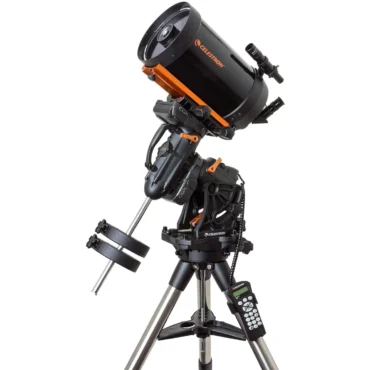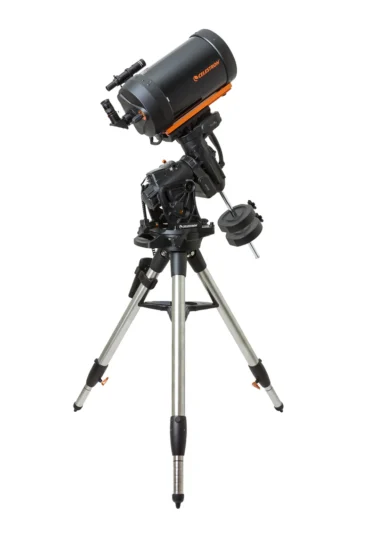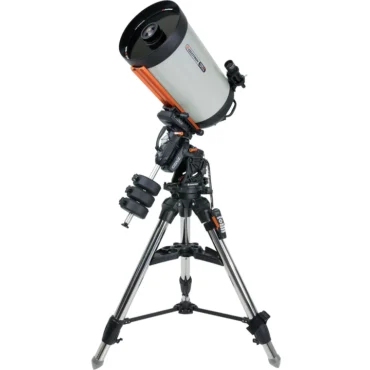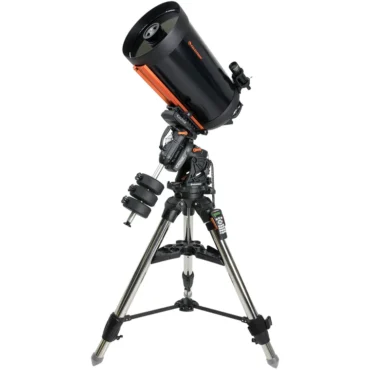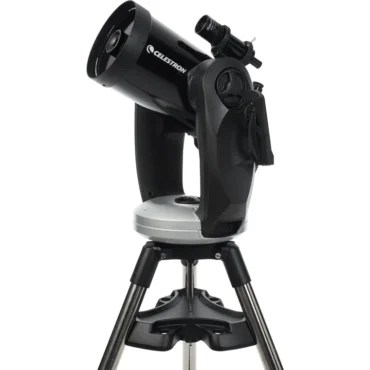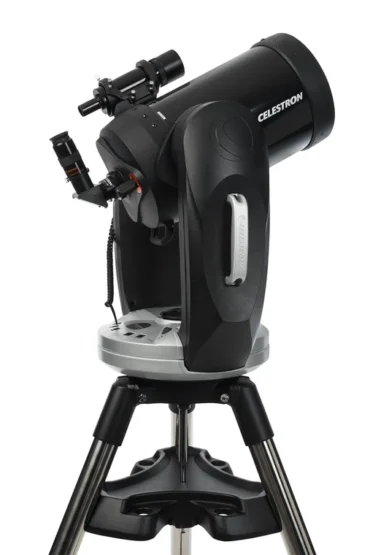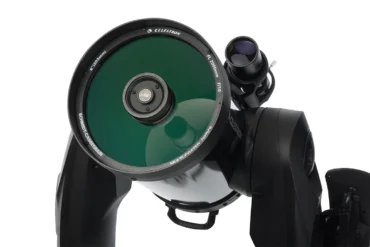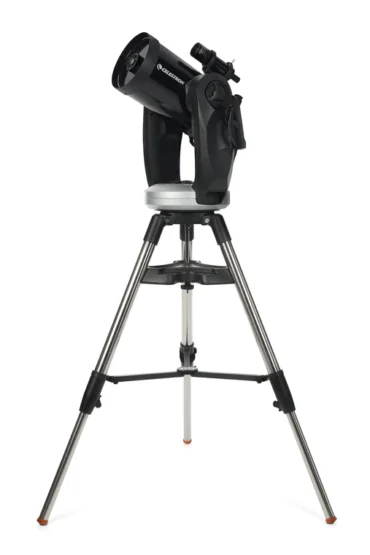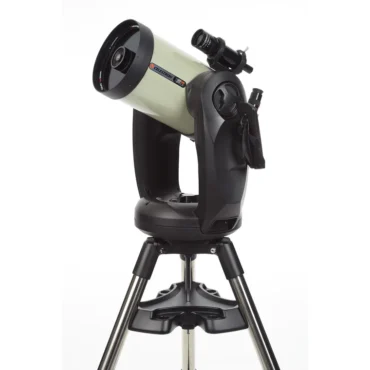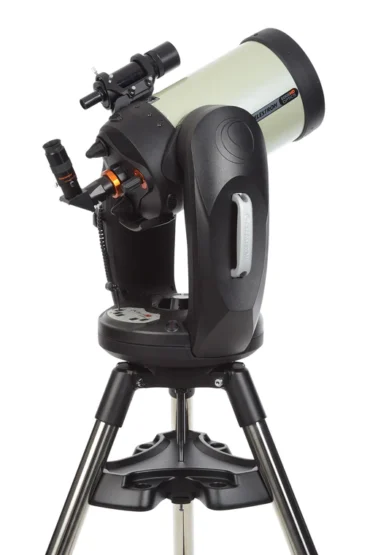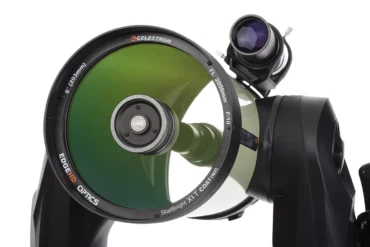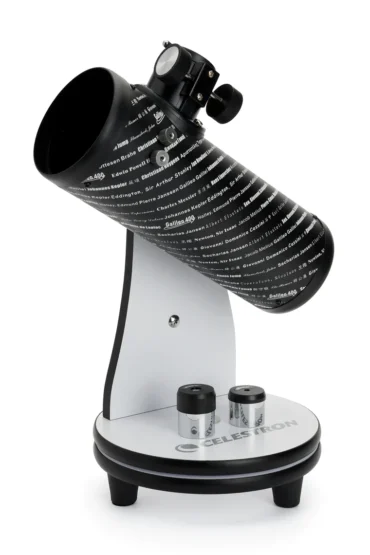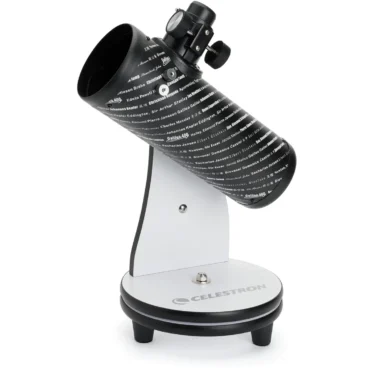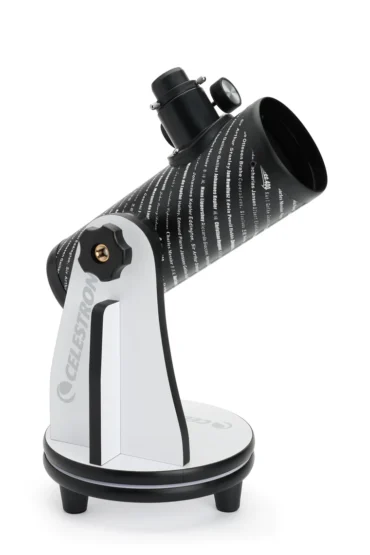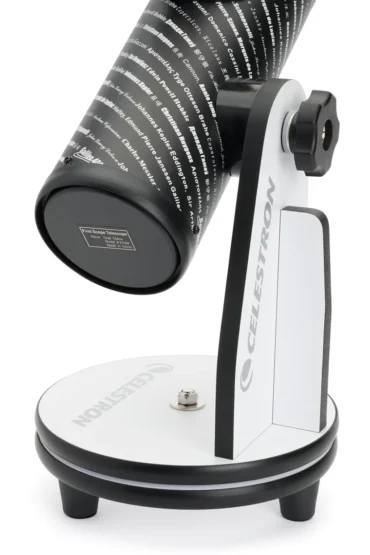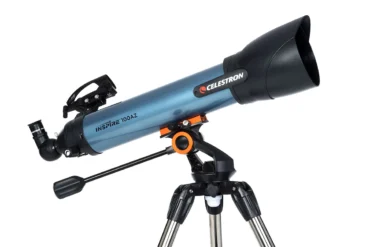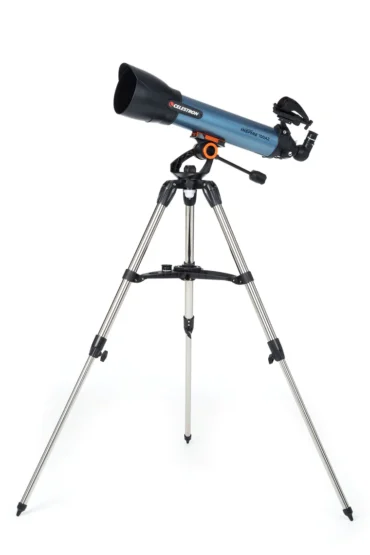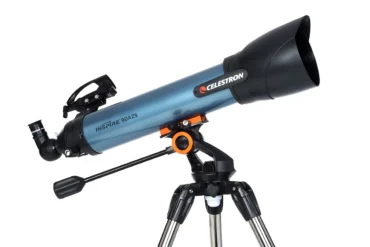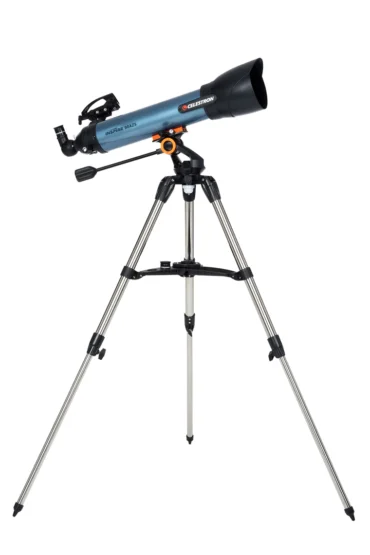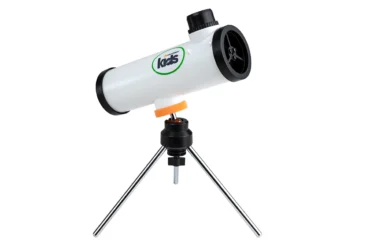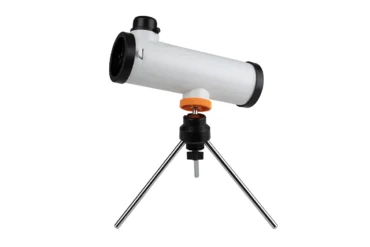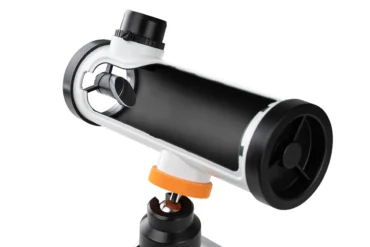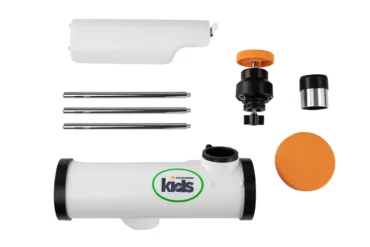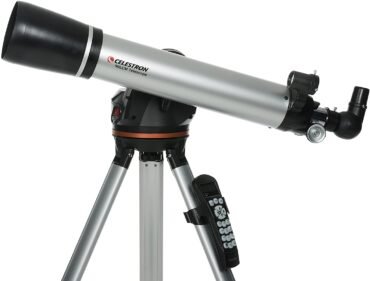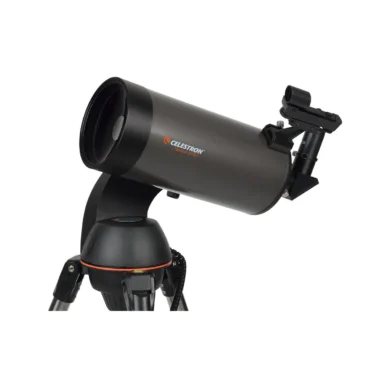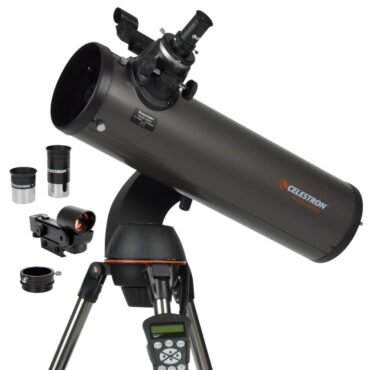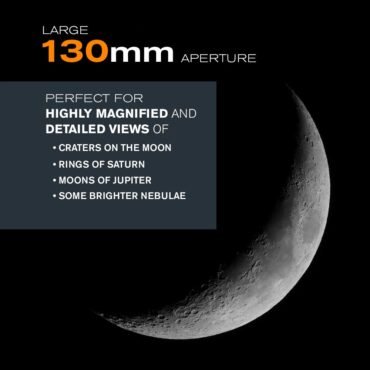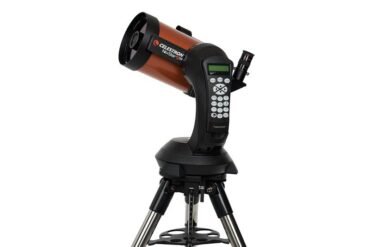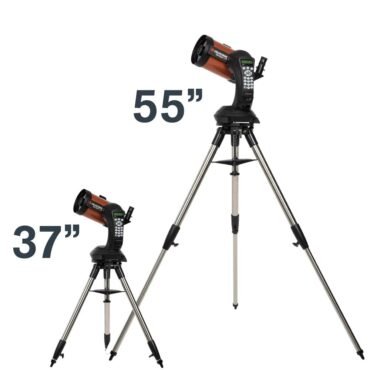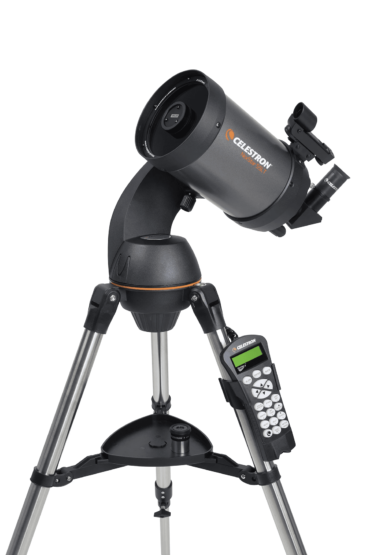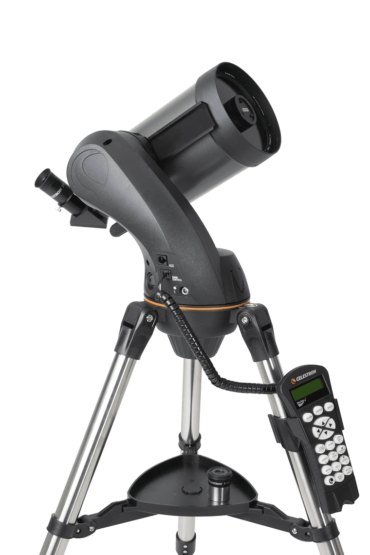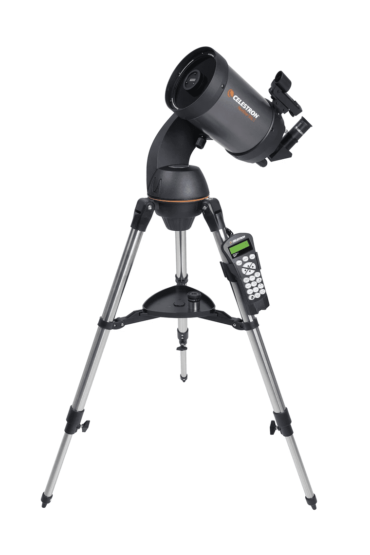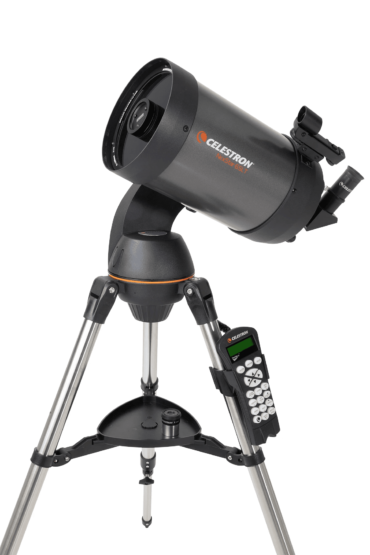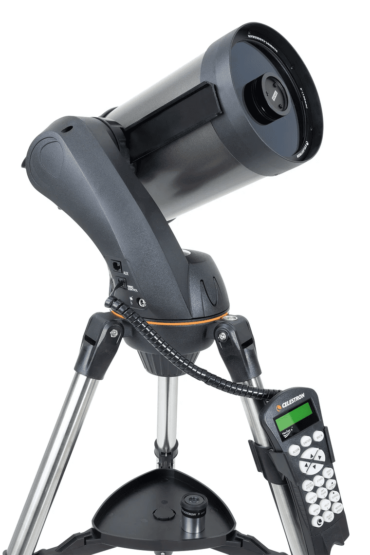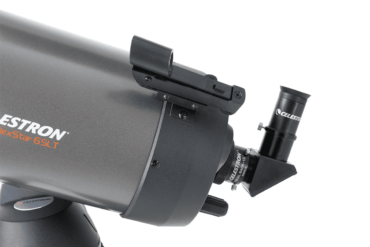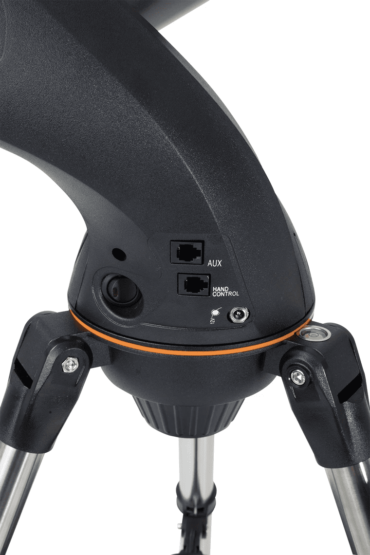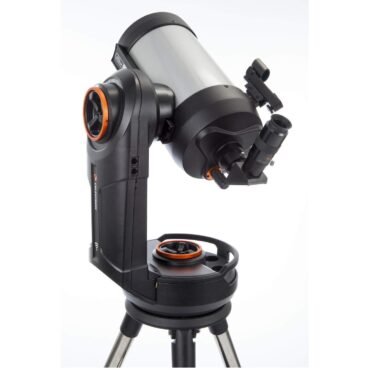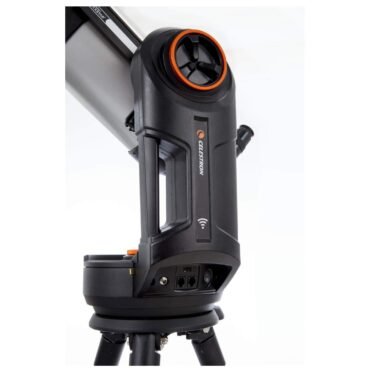Telescopes
- 16
- 32
- 64
- 3
- 4
- 5
-
CELESTRON CGX EQUATORIAL 800 SCHMIDT-CASSEGRAIN TELESCOPE
₹847,456.78Original price was: ₹847,456.78.₹745,762.71Current price is: ₹745,762.71. (Ex. GST)-12% OFF -
CELESTRON CGX-L EQUATORIAL 1400 HD TELESCOPE
₹1,949,151.69Original price was: ₹1,949,151.69.₹1,788,135.59Current price is: ₹1,788,135.59. (Ex. GST)-8% OFF -
CELESTRON CGX-L EQUATORIAL 1400 SCHMIDT-CASSEGRAIN TELESCOPE
₹1,864,405.93Original price was: ₹1,864,405.93.₹1,737,288.14Current price is: ₹1,737,288.14. (Ex. GST)-7% OFF -
Celestron CPC 800 GPS (XLT) COMPUTERIZED TELESCOPE
₹593,219.49Original price was: ₹593,219.49.₹550,847.46Current price is: ₹550,847.46. (Ex. GST)-7% OFF -
CELESTRON CPC DELUXE 800 HD COMPUTERIZED TELESCOPE
₹677,965.25Original price was: ₹677,965.25.₹610,169.49Current price is: ₹610,169.49. (Ex. GST)-10% OFF -
Celestron FirstScope Telescope
₹7,618.64Original price was: ₹7,618.64.₹6,610.17Current price is: ₹6,610.17. (Ex. GST)-13% OFF -
Celestron Inspire 100AZ Refractor Telescope
₹44,906.78Original price was: ₹44,906.78.₹29,661.02Current price is: ₹29,661.02. (Ex. GST)-34% OFF -
Celestron Inspire 90AZS Refractor Telescope
₹44,906.78Original price was: ₹44,906.78.₹25,423.73Current price is: ₹25,423.73. (Ex. GST)-43% OFF -
Celestron Kids 50mm Newtonian Telescope
₹5,923.73Original price was: ₹5,923.73.₹4,237.29Current price is: ₹4,237.29. (Ex. GST)-28% OFF -
Celestron LCM 90 Refractor Computerized Telescope
₹48,000.00Original price was: ₹48,000.00.₹44,500.00Current price is: ₹44,500.00.-7% OFF -
Celestron NexStar 127SLT Computerized Telescope
₹80,500.00Original price was: ₹80,500.00.₹69,491.53Current price is: ₹69,491.53. (Ex. GST)-14% OFF -
Celestron NexStar 130SLT Computerized Telescope
₹93,135.59Original price was: ₹93,135.59.₹59,322.03Current price is: ₹59,322.03. (Ex. GST)-36% OFF -
Celestron NexStar 5SE Computerized Telescope
₹162,703.39Original price was: ₹162,703.39.₹105,932.20Current price is: ₹105,932.20. (Ex. GST)-35% OFF -
Celestron NexStar 5SLT Computerized Telescope
₹106,771.19Original price was: ₹106,771.19.₹69,491.53Current price is: ₹69,491.53. (Ex. GST)-35% OFF -
Celestron NexStar 6SLT Computerized Telescope
₹127,110.17Original price was: ₹127,110.17.₹97,457.63Current price is: ₹97,457.63. (Ex. GST)-23% OFF -
Celestron NexStar Evolution 6 Computerized Telescope
₹245,762.71Original price was: ₹245,762.71.₹207,627.12Current price is: ₹207,627.12. (Ex. GST)-16% OFF
Frequently Asked Questions
What is a telescope?
A telescope is an optical instrument designed to gather and focus light from distant objects. It is used to observe and study objects in space such as stars, galaxies, planets, and other celestial objects.
What is the difference between magnification and aperture?
Magnification is the factor by which a telescope increases the apparent size of an object. Aperture is the diameter of the telescope’s objective lens or primary mirror, which determines how much light the telescope can gather and how much detail can be seen.
What is the best telescope for beginners?
A small to medium-sized Dobsonian telescope is often recommended for beginners, as they are easy to set up and use and provide good views of the night sky.
Can I see distant objects like planets with a telescope?
Yes, a telescope can be used to observe planets, stars, and other celestial objects that are too distant to be seen with the naked eye. However, the quality of the view will depend on the quality of the telescope and other factors like atmospheric conditions.
How much should I spend on a telescope?
The amount you should spend on a telescope depends on your budget and how serious you are about astronomy. In general, you can find good quality telescopes for beginners starting at around $200, while more advanced telescopes can cost several thousand dollars.
How do I maintain my telescope?
Regular maintenance of a telescope is important to ensure its longevity and performance. You should keep it clean and dry, store it in a dry and dust-free place, and check for any signs of wear and tear on the components. You should also regularly collimate the mirrors (in the case of a reflecting telescope) to keep the image sharp.
Can I use a telescope during the day?
Yes, a telescope can be used during the day to observe objects like the sun, the moon, and planets like Venus and Jupiter. However, you should never point a telescope at the sun without a solar filter, as this can cause permanent eye damage.



